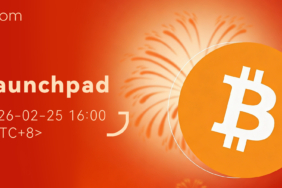With 2024 already underway, the anticipation in crypto circles is hitting a fever pitch as everyone braces for Bitcoin’s halving – an event that could reshape its market landscape. It deserves to be looked into as historically this event sparked transformative waves across the crypto scene. Knowing what we’ve learned from previous halvings, we’re set to steer ahead with a keen eye, making sure our moves are shaped by those insights. But is this upcoming halving any different? Let’s figure it out.
From Digital Gold to Rare Platinum: Bitcoin’s Story of Increasing Scarcity and Value
Bitcoin design is all about making BTC less and less available over time, keeping inflation in check. There’s a set cap of 21 million Bitcoins to ever exist, and we’ve already hit the 19.62 million mark. The scarcity of Bitcoin, with its strictly limited release into the market, is a major reason why people call it “digital gold” – as both these assets have that “hard to come by” quality.
Thinking of the Bitcoin blockchain as a ticking clock, we can see that halving occurs every 210,000 blocks, or about every four years, with the reward for mining new blocks getting chopped in half. It’s been this way since Bitcoin’s kick-off in 2009, starting at 50 BTC per block and heading down to 3.125 BTC in 2024.
The Stock-to-Flow ratio, which compares existing supply to new coins coming in, shows Bitcoin is about to get rarer than a platinum album. By 2032, after the 2024 and 2030 halvings, Bitcoin’s scarcity will soar, so it will be even more of a gem than gold.

Bitcoin’s Post-Halving Growth Patterns
Let’s take a stroll down Bitcoin’s memory lane. After each halving, Bitcoin’s price has skyrocketed. Post the 2012 halving, just 100 days later, the market cap exploded by 342%. Even more impressive, the peak price hit a staggering $1,152 the next year, an 8,761% leap. Flash forward to 2016: rewards halved from 25 to 12.5 BTC, and the price soared to $17,760 the following year, a 2,572% jump. The most recent halving in 2020 saw the reward drop to 6.25 BTC, and Bitcoin’s price didn’t disappoint, hitting $67,549 the next year, marking a solid 594% growth.
If we play armchair mathematicians for a bit, we can look at how Bitcoin’s growth rate decreased after past halvings – by 70.64% from halving one to two and by 76.91% from two to three – and average out those decreases to land at a growth rate decrease of 73.78%. We then slap this onto the 594.03% growth post the third halving and – voila – we get a speculative growth rate of 155.79% after the 2024 halving. This means Bitcoin could potentially hit around $111,807 between one to one and a half years after the upcoming halving. But let’s be clear: this all is merely speculation and definitely not something to base your investment decisions on.
Miners’ Survival of the Fittest
For Bitcoin miners, the 2024 halving will be an uphill battle. With rewards slashed in half, miners operating with outdated equipment and facing high electricity bills will be caught between a rock and a hard place. In Italy, for example, mining a single Bitcoin can reach as much as a luxury Lamborghini Huracán or a Porsche 911 Turbo S, with costs soaring up to $208,560.

The 2024 halving will transform the mining landscape into a scene reminiscent of ‘The Hunger Games,’ where only the strongest miners, armed with the most efficient technology and access to affordable energy, will survive. This halving will be like the ultimate arena, a test of strategy and resilience, where only those equipped with savvy cost-effective tactics will emerge as victors in the competitive battleground.
Closing Thoughts
So, the 2024 Bitcoin halving is poised to seriously shake things up, with major changes in mining operations and a potential big swing in Bitcoin’s price. The forthcoming halving event mingles hard-hitting economic theories with cutting-edge tech strides, all wrapped up in that unmistakable crypto allure. Whether you’re mining, hodling, or just watching from the sidelines, grab your popcorn – this will go down in the books!
This is a guest post by Maria Carola. Opinions expressed are entirely their own and do not necessarily reflect those of BTC Inc or Bitcoin Magazine.




